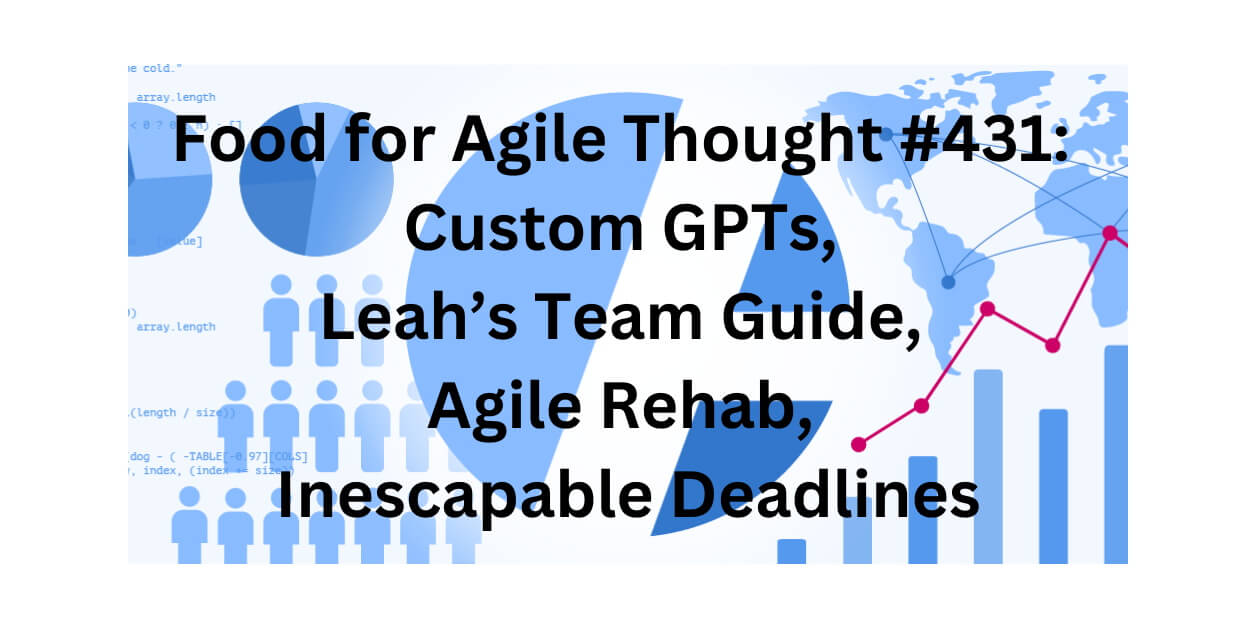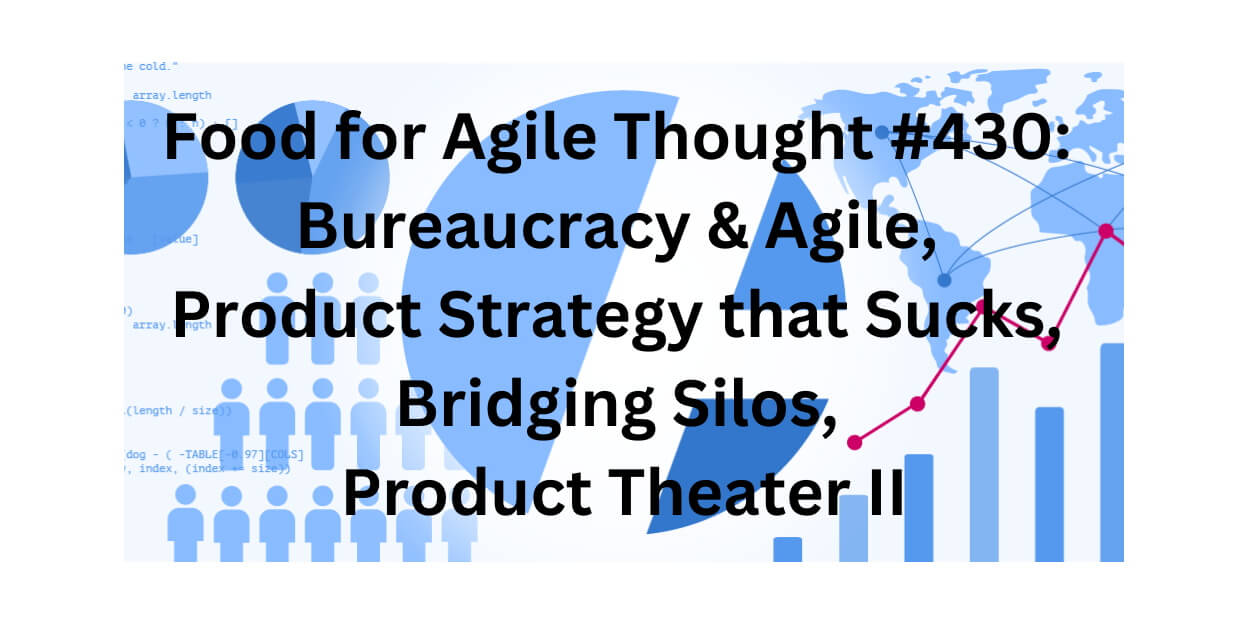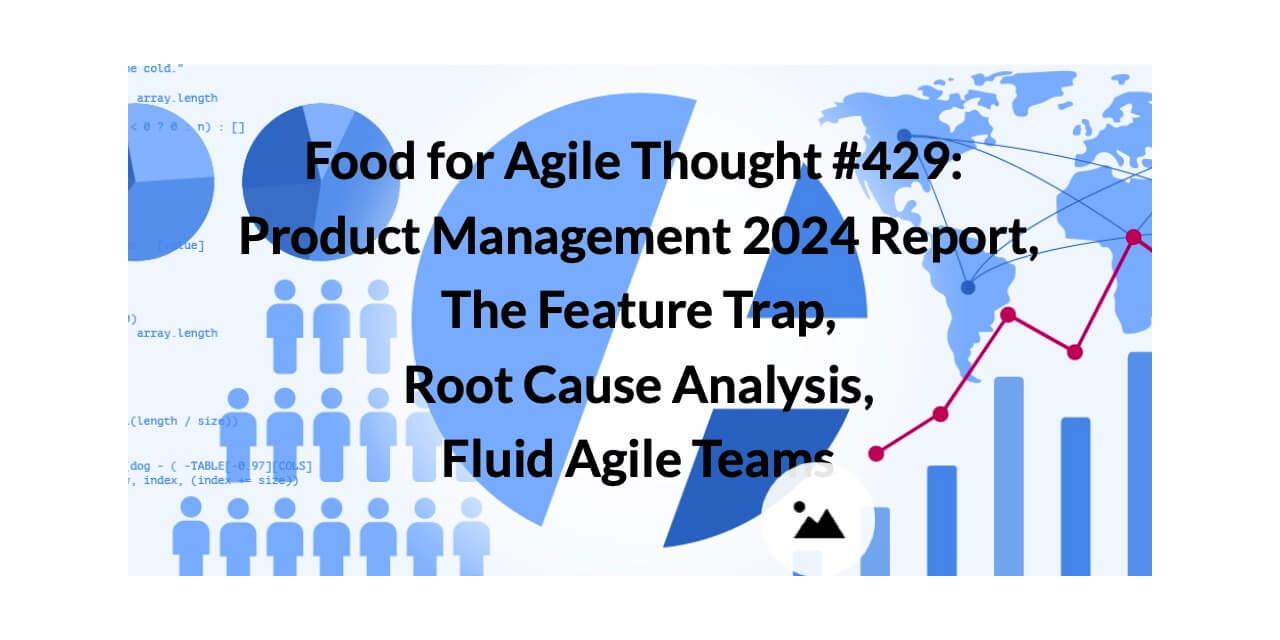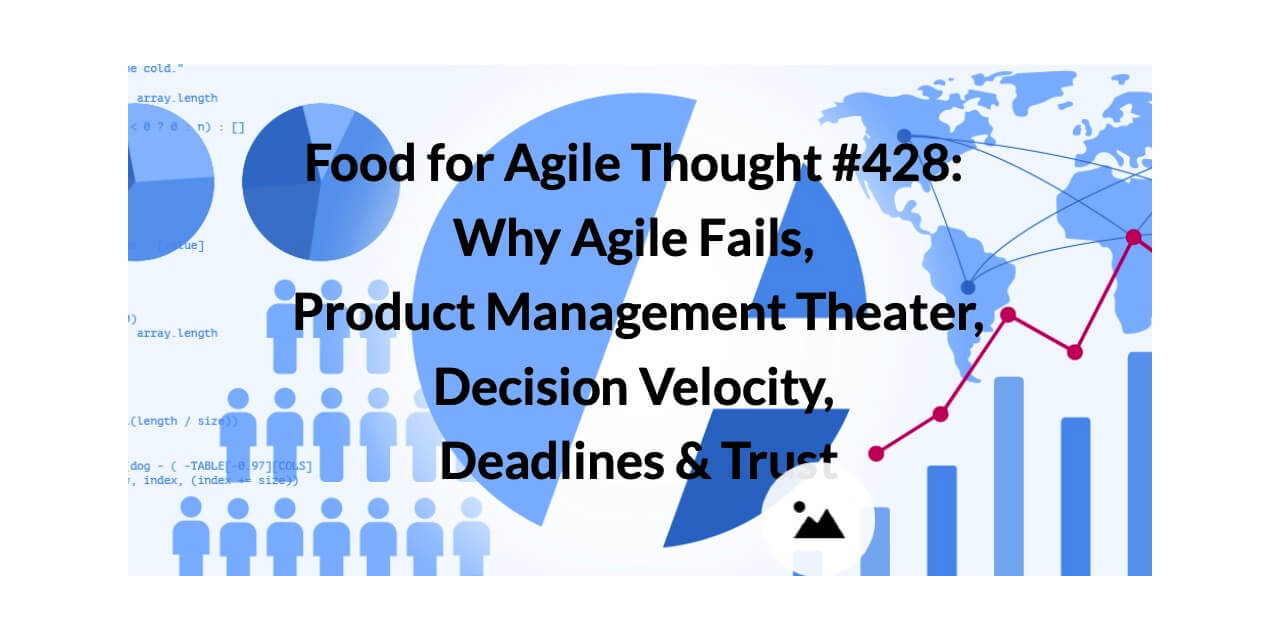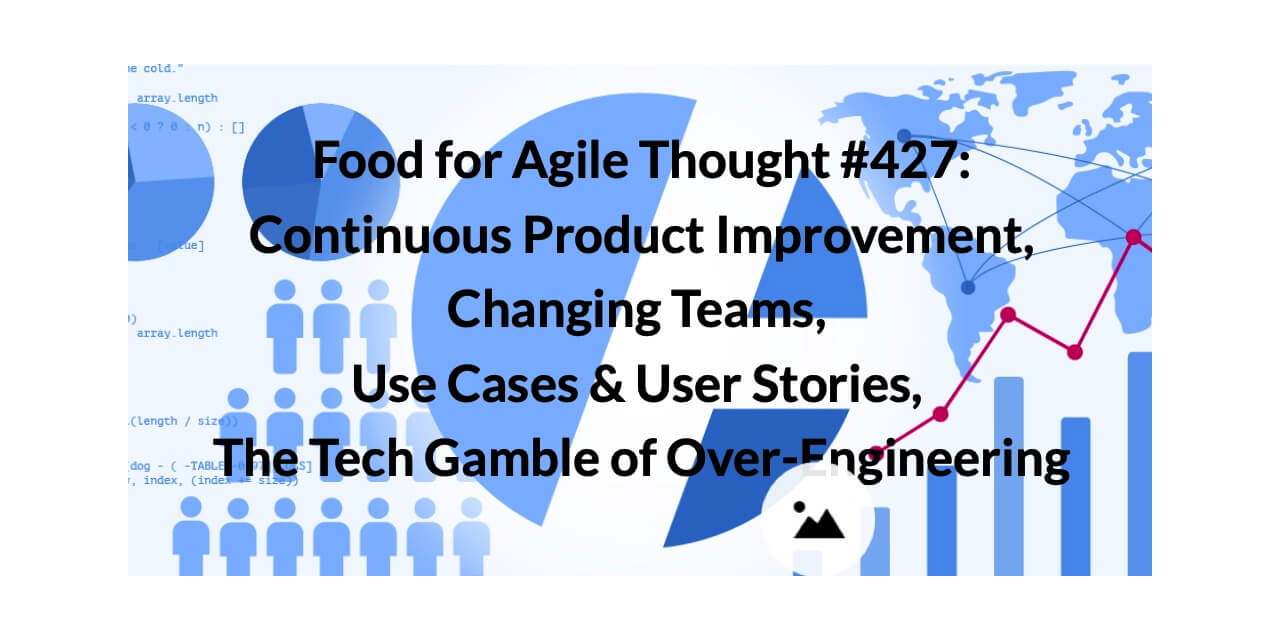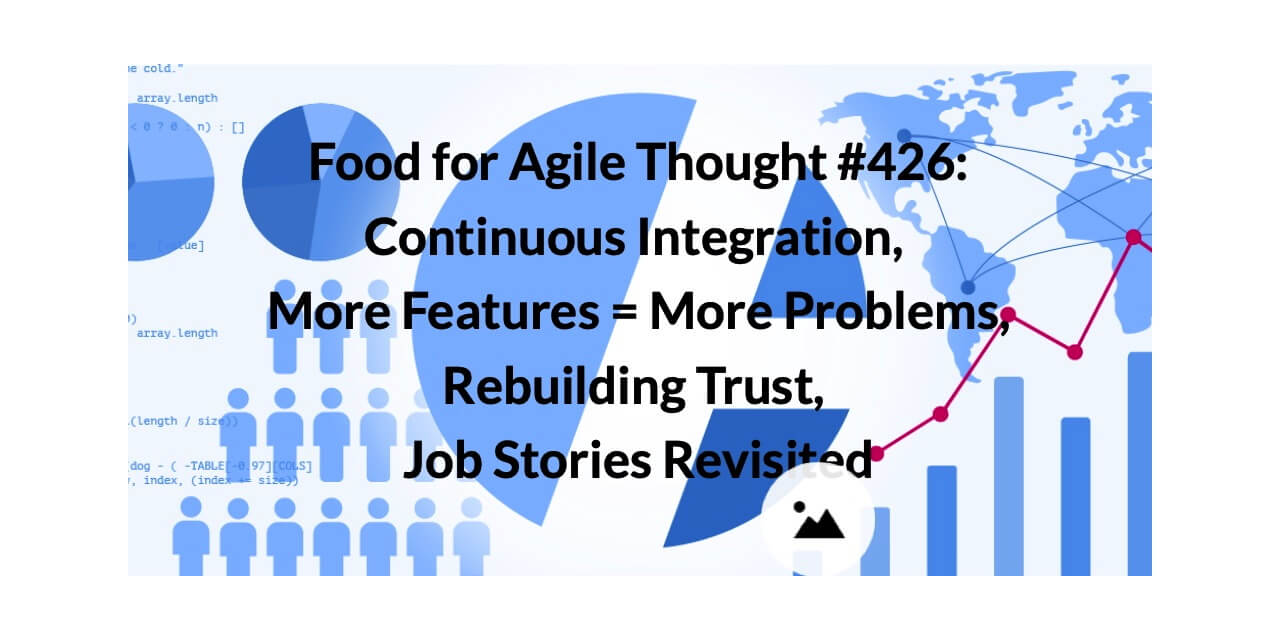TL; DR: Custom GPTs — Food for Agile Thought #431
Welcome to the 431st edition of the Food for Agile Thought newsletter, shared with 42,216 peers. This week, Lenny Rachitsky explores how custom GPTs revolutionize workplace productivity with 20 innovative applications. The Agile Uprising Podcast with Chris Murman, Jay Hrcsko, and Andrew Leff tackles the theme of gluttony within Agile, stressing the importance of balance and self-awareness. Jorn van der Schaaf shares insights into Ivy Global’s growth without traditional managerial roles, advocating for self-organization and collective decision-making, and Bryan Finster focuses on engineering solutions to enhance software delivery and job satisfaction. Additionally, the Scrum Master Salary Report 2024 offers valuable data from 1,114 participants globally, revealing an average salary of $87,800.
Then, Janna Bastow analyzes strategies for transforming potential users into devoted customers, and Leah Tharin guides on evolving product and growth team structures for enhanced agility. Moreover, Teresa Torres advises leveraging customer feedback for product evolution. At the same time, Ant Murphy explores adaptive pricing models in product-led growth, challenging conventional wisdom and encouraging innovative strategies for monetization and user acquisition.
Lastly, Noah Cantor advises tech teams on achieving flow and quality by focusing on essentials, removing dependencies, and breaking down silos for smoother operations. Also, Todd Lankford challenges the productivity myth of deadlines, revealing their demotivating impact and proposing a healthier, deadline-free approach to product development. Finally, Cheryl Strauss Einhorn explores handling professional disagreements gracefully, offering a tool for making and executing decisions with empathy to enhance team dynamics and resilience.
